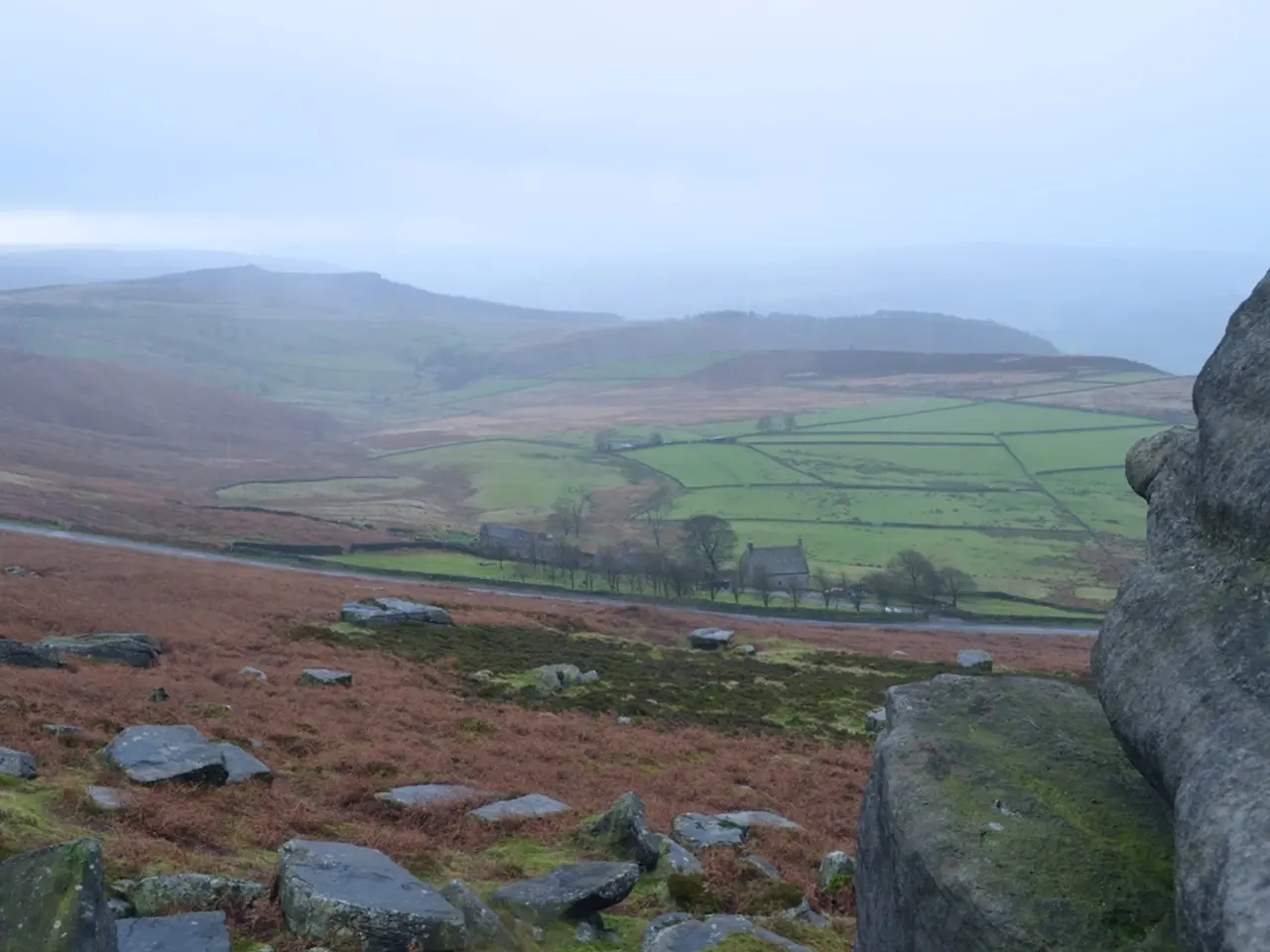Nature-Based Investments at COP16: Empathy's Significant Impact on Conservation Efforts
Empathy in Investment Decision-Making: A New Approach to Climate and Biodiversity Challenges
In the world of finance, empathy is increasingly being recognised as a valuable tool in addressing the complex issues of climate change and biodiversity loss. Leanne Clements, the head of Responsible Investment at People's Pension, is at the forefront of this shift.
Clements will soon speak on the shape of DC stewardship at a forum in London on January 30. Her views are shaped by her experiences, including the emotional impact of the EY Four Futures immersive experience. This innovative project presents four global future scenarios titled: Business as usual, Collapse, Constraint, Transformation (from worst to best case scenarios). Clements finds the emotional testimonials delivered by AI avatars from the 2050s particularly compelling.
The immersive experience, debuted at a climate COP, has sparked conversations about the role of empathy in investment decision-making. Clements believes that empathy for future society can catalyse more action on climate change and biodiversity loss. However, she questions whether the financial sector is prepared to incorporate emotions into investment decision making.
Indigenous communities are an excellent case for empathy in understanding stakeholder tensions and addressing sustainability challenges. In Colombia, making indigenous communities a more formal part of the Biodiversity COP process was a political win. This move acknowledges the crucial role these communities play in preserving biodiversity and mitigating climate change.
The need for a 'just' transition to a net zero, and a nature-positive economy is a topic of discussion among investors. This transition requires a balance of interests, which can be complex given the sometimes conflicting needs of economic growth and environmental protection. Tensions between different actors in the roundtable at COP16, involving various members of the food chain, from investors to farmers, highlighted these challenges.
The People's Pension, focusing on food systems at COP16, a key driver of deforestation and global emissions, emphasises focus, materiality, and trade-offs in its Responsible Investment Policy. Questions were raised about the effectiveness of new emerging investment vehicles in "nature-based solutions".
As the COP season comes to an end, with a focus on policy commitments related to climate and nature, the debate around empathy in investment decision-making continues. Clements wonders if the financial sector could benefit from similar immersive experiences to foster a deeper understanding of the human impacts of climate change and biodiversity loss.
Benefits and Challenges of Empathetic Investment Decision-Making
Incorporating empathy into investment decision-making for addressing climate change and biodiversity loss offers several key benefits and challenges.
The benefits include improved decision quality and innovation, better management of emotional biases, stronger stakeholder relationships, and enhanced alignment with social goals. Empathy fosters deeper understanding and communication among stakeholders, leading to more insightful and innovative climate and biodiversity investment strategies. It helps investors and advisors recognise and manage emotional responses, reducing rash decisions in volatile markets and promoting disciplined, long-term investment aligned with sustainability goals. Empathy enables investors to appreciate the perspectives of affected communities, customers, and employees, leading to more socially responsible investing that considers broader impacts on ecosystems and livelihoods. Empathetic processes can integrate human and environmental needs, increasing the likelihood of investments supporting effective climate action and biodiversity conservation while gaining public trust.
However, empathy also presents challenges. Balancing interests can be complex given the diversity of stakeholders with sometimes conflicting needs. Excessive emotional influence might lead to less objective assessments or prioritization of short-term feelings over long-term scientific evidence and financial returns. Quantifying empathy’s impact and embedding it systematically into investment frameworks demand new tools and skills, which can be resource-intensive and require cultural shifts within financial institutions. Potential trade-offs between financial and environmental returns may also arise, challenging conventional investment evaluation metrics.
In summary, empathy in climate and biodiversity investment decision-making promotes more holistic, inclusive, and adaptive strategies but requires careful management to prevent emotional bias and operational challenges in integrating these human-centered approaches effectively within the financial system.
[1] Empathy and Decision-Making: The Role of Empathy in Sustainable Investment
[2] The Role of Emotions in Sustainable Investment
[4] The Impact of Empathy on Sustainable Investment
[5] The Role of Empathy in Sustainable Finance
[1] Leanne Clements, the head of Responsible Investment at People's Pension, believes that empathy for future society can catalyze more action on climate change and biodiversity loss, questioning whether the financial sector is prepared to incorporate emotions into investment decision making.
[2] The immersive experience, debuted at a climate COP, has sparked conversations about the role of empathy in investment decision-making, with Clements finding the emotional testimonials delivered by AI avatars from the 2050s particularly compelling.
[4] Indigenous communities, being an excellent case for empathy in understanding stakeholder tensions and addressing sustainability challenges, play a crucial role in preserving biodiversity and mitigating climate change.
[5] The People's Pension, focusing on food systems at COP16, emphasizes the need for focus, materiality, and trade-offs in its Responsible Investment Policy, showing empathy towards the impacts of climate change and biodiversity loss on affected communities, customers, and employees.




